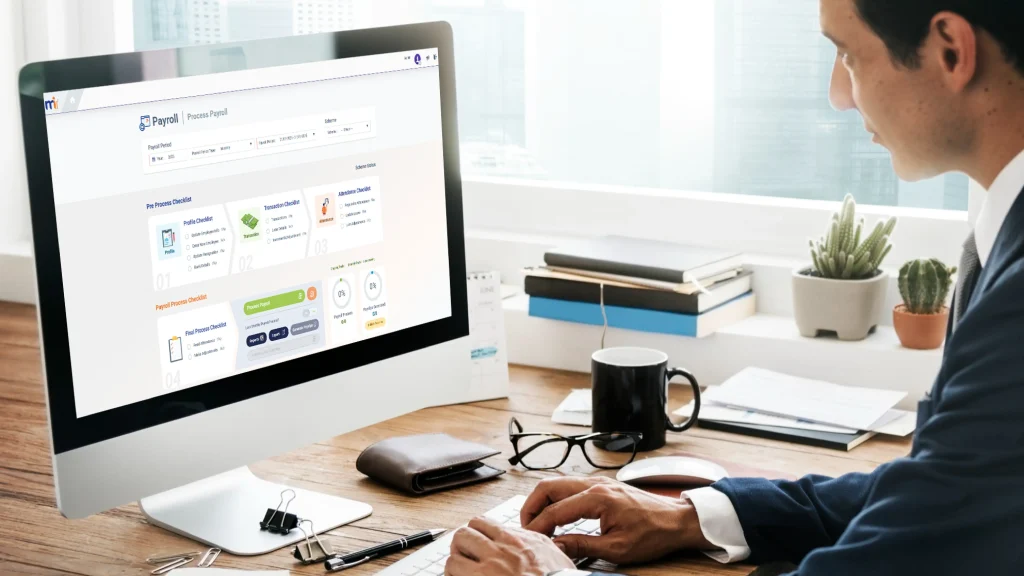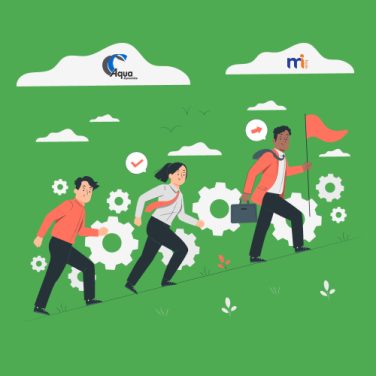As globalisation intensifies and technological advancements accelerate, payroll operations are facing increasing complexities.
Companies are now recognising the necessity of transitioning to future-ready payroll solutions that can seamlessly integrate with their broader HR and finance systems, driven by the need to streamline operations, enhance regulatory compliance, and support an increasingly remote and mobile workforce.
To thrive in this evolving environment, organisations must embrace cutting-edge technologies such as AI to automate routine tasks and ensure compliance across multiple jurisdictions.
In addition to technology, there’s a growing demand for integrated systems that provide comprehensive solutions, linking payroll to HR and finance for a more cohesive workflow.
As businesses navigate these changes, aligning payroll with strategic business goals becomes paramount. Future-ready payroll systems not only facilitate better efficiency and compliance but also equip finance teams with the tools to manage complex operations with limited resources.
For more insights into investing in an online payroll system, explore Online Payroll System: 8 Ultimate Reasons to Invest in One.
Key drivers of change

This year, businesses are increasingly turning to digital transformation and integration to handle the intricacies of cross-border payments and compliance. This transition is marked by:
- Increased automation and AI integration that reduces manual burdens and enhances compliance accuracy.
- The burgeoning role of remote work which necessitates innovations in payroll systems to accommodate international employees efficiently.
- The ongoing shift towards mobile and digital payroll solutions that offer ease, flexibility, and transparency for both employees and employers.
These drivers are catalysing a significant transformation, pushing for payroll systems that not only support but anticipate the nuances of global payroll processing.
Streamlined global payroll management, with unified HR and finance integrations, like those offered by MiHCM products, are essential in this transition.
As more businesses embrace these trends, they will not only gain a competitive edge but also ensure precise compliance management in an era of heightened regulatory scrutiny.
Integrating state-of-the-art solutions for global payroll management is more than a strategic move; it’s a business imperative.
Harnessing AI for payroll efficiency
Global payroll in 2025 is being revolutionised by advanced technologies, with Artificial Intelligence (AI) and automation driving transformation across payroll operations. AI is not just a tool; it’s reshaping how payroll functions, optimising efficiency, accuracy, and compliance.
Here’s how:
- AI integration: AI-powered processes automate tedious tasks, reducing the manual workload and freeing payroll teams to focus on strategic functions. This shift is transforming payroll professionals from data processors into strategic advisors.
- Error reduction: With machine learning algorithms, payroll systems can predict and identify potential discrepancies before they occur, ensuring higher accuracy and minimising costly errors.
- Enhanced decision-making: By integrating payroll data with HR and finance, AI provides actionable insights for businesses. These insights are critical for strategic planning and optimising workforce management.
These developments make payroll systems more than just administrative tools; they become strategic assets that enhance decision-making capabilities.
Combining payroll data with HR analytics unlocks new potentials for enhancing employee experiences and providing real-time insights. This data-driven approach revolutionises how decisions are made, ensuring that payroll aligns closely with business objectives.
The MiHCM suite exemplifies this transformation, as it offers efficient payroll management systems with seamless AI integration, ensuring compliance with local labour laws globally.
Tailored approaches to modern challenges

Future-ready payroll solutions should not only address the complexities of global operations but also strategically support diverse business requirements. Companies need to explore tailored solutions that provide agility and adaptability in the face of fluctuating international regulations and workforce dynamics.
Moreover, adopting adaptable payroll solutions is essential for companies aiming to cater to a remote and hybrid workforce. With the increase in remote work, managing compliance across jurisdictions becomes a pressing concern. Advanced systems that automate compliance actions and streamline reporting are imperative to safeguard organisational integrity.
For example, MiHCM solutions offer robust capabilities that unify HR and payroll functions, ensuring comprehensive compliance management while empowering strategic decision-making. This enables organisations to not only meet regulatory requirements but also harness payroll as a tool for broader organisational success.
Companies investing in these future-ready solutions can expect to achieve enhanced employee experiences, which in turn foster business growth.
For organisations in Thailand and the Maldives looking to revolutionise their HR systems, MiHCM | Phần mềm nhân sự tốt nhất tại Thái Lan | Hệ thống nhân sự và tiền lương Và MiHCM | Hệ thống nhân sự tốt nhất tại Maldives | Phần mềm nhân sự và tính lương provide comprehensive options to align payroll processes with strategic business goals.
Managing compliance in global payroll 2025
Managing compliance in global payroll 2025 is a task fraught with complexities across different jurisdictions. Ensuring effective compliance management is crucial not only to avoid fines but also to protect a company’s reputation and employee trust.
To address these challenges, adopting automated systems capable of real-time monitoring of global payroll processes is vital. These systems provide businesses with the tools to adapt swiftly to regulatory changes and ensure continuous legal conformity.
Successful case studies highlight how companies have leveraged integrated platforms like the MiHCM suite to navigate these intricate compliance landscapes.
MiHCM platforms not only streamline payroll but also enhance workforce productivity by automating mundane tasks. Understanding and utilising solutions like MiHCM Enterprise or Lite allows organisations to remain compliant while unlocking new productivity gains.
Creating a unified payroll ecosystem
The integration of payroll with HR and finance systems serves as a cornerstone for enhancing operational efficiency and data-driven strategy in global payroll 2025.
Integration dramatically reduces manual data handling errors, allowing real-time access to workforce and financial information. This ensures that companies can make informed decisions based on up-to-date financial and employee data.
The strategic use of AI in payroll not only enhances data accuracy but also provides crucial insights that guide future workforce management and strategic planning.
- Improved data accuracy: Integrated systems ensure data consistency across HR and finance functions, eliminating discrepancies that could lead to costly errors.
- Enhanced operational efficiency: By reducing time spent on data management, companies can focus on strategic initiatives that drive growth.
- Comprehensive compliance management: Automation of compliance processes reduces the risk associated with manual oversight across multiple jurisdictions.
The benefits of integrating payroll data with other systems extend beyond traditional operational efficiencies. Transforming your workplace through HR analytics helps companies tap into actionable insights that foster an informed organisational strategy.
Ultimately, the unified approach to system integration not only enhances productivity but also fortifies a company’s ability to adapt to evolving regulatory requirements and market advancements.
Embracing integrated payroll systems is more than a technological upgrade; it’s a strategic investment in your company’s future viability.



